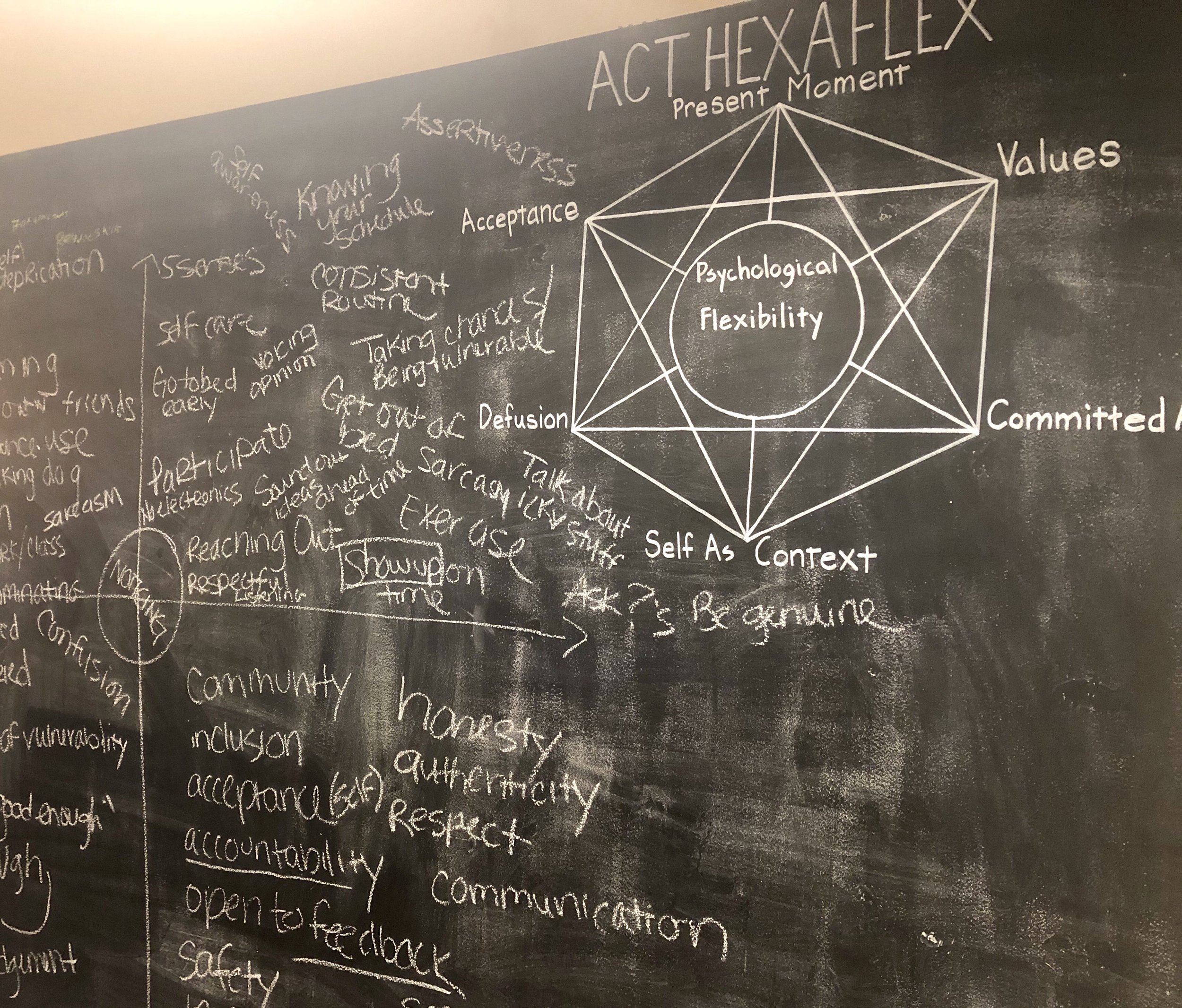ACT Acceptance and Commitment Therapy.
Acceptance & Commitment
Acceptance and Commitment Therapy (ACT) uses mindfulness strategies together with commitment and behavior change strategies. The ultimate goal is to increase psychological flexibility, which is the ability to live in the present while being aware of your thoughts and emotions. You can experience these, but you don’t allow them to control you.
ACT defines suffering as a universal experience and does not aim to directly reduce symptoms of distress. Instead, when individuals engage with what is important to them, they are more likely to experience a rich and meaningful life.
The Hexaflex
The Hexaflex ACT is a program that targets mindfulness and behavioral change strategies through six different modules of learning. The six modules are Cognitive Defusion, Self as Context, Present Moment Engagement, Acceptance, Values, and Committed Action. An individual can focus on any of these modules to increase their psychological flexibility, and there is no particular order or importance to any of them.
The four mindfulness-based modules are focused on engaging with the present moment, acceptance, cognitive defusion, and self as context. The behavior change modules are focused on present moment engagement, values, and committed actions. Cognitive inflexibility is the opposite of these six processes, and an individual generally falls somewhere on a spectrum between the two.
The inverse of the six modules are Cognitive Fusion, Attachment to Conceptualized Self, Conceptualized Past and Feared Future, Experiential Avoidance, Lack of Clarity, and Inaction/Impulsivity or Avoidance.
At Onward Transitions, we utilize the Matrix as a dynamic tool to assist our members in developing new relationships with their thoughts and actions. The Matrix enables them to observe and identify any obstacles that may hinder their ability to lead a fulfilling life based on their values.
The Matrix
The ACT Matrix is a tool that merges all six modules into a user-friendly format. While it includes all the components of the Hexaflex, its simple questions and easy-to-understand terminology make it straightforward. It acts as a "map" that helps individuals understand how they align with their values at any given moment.
